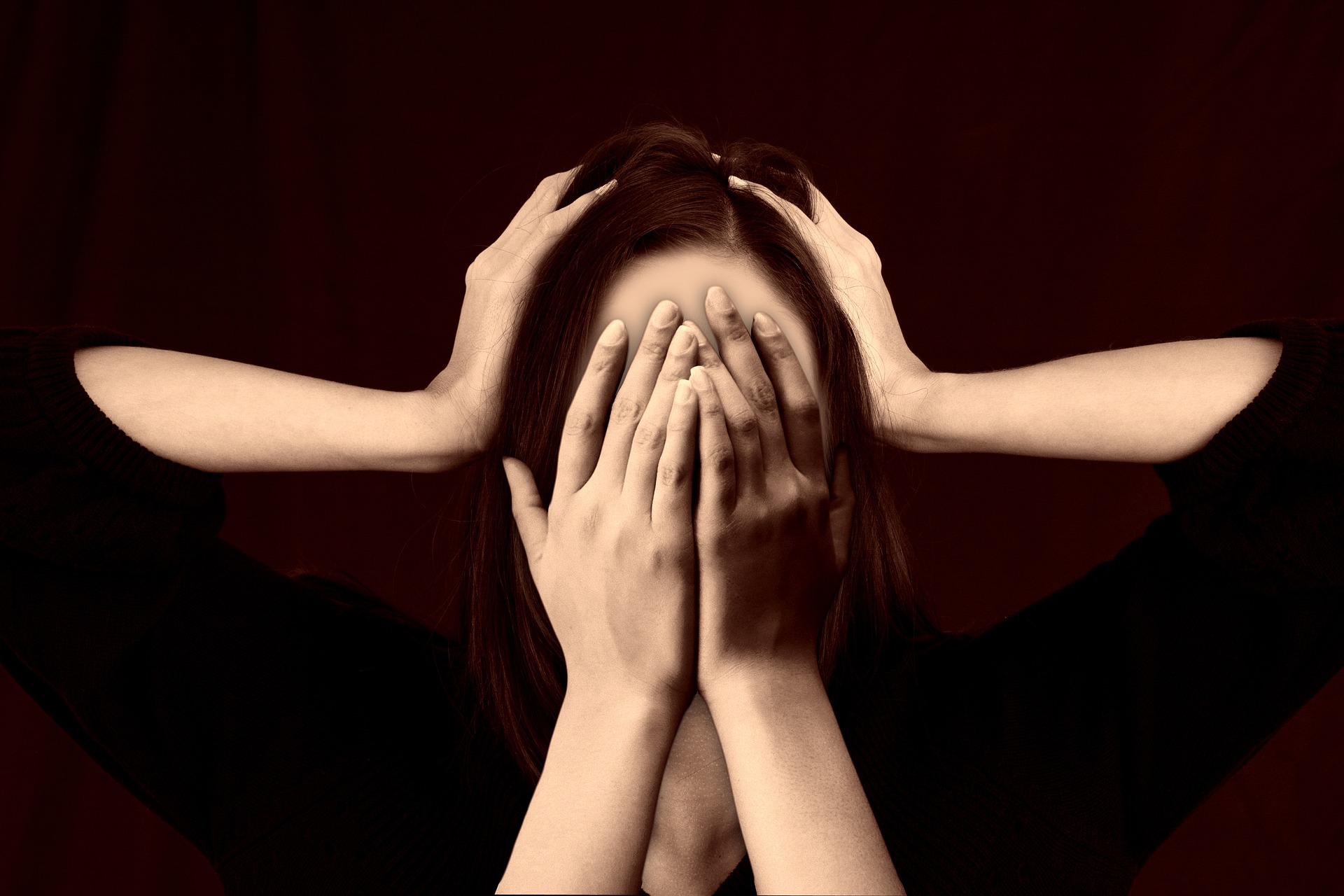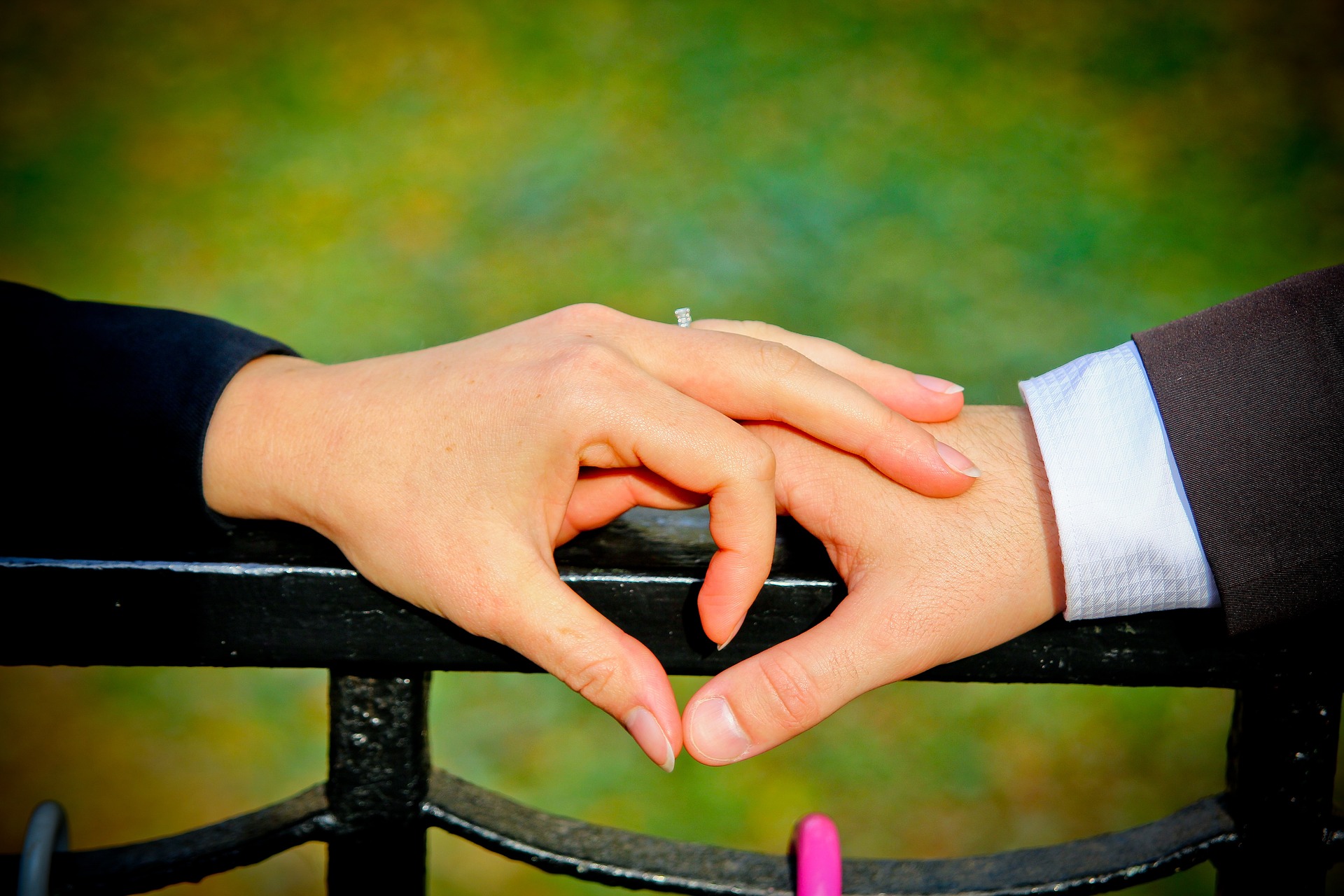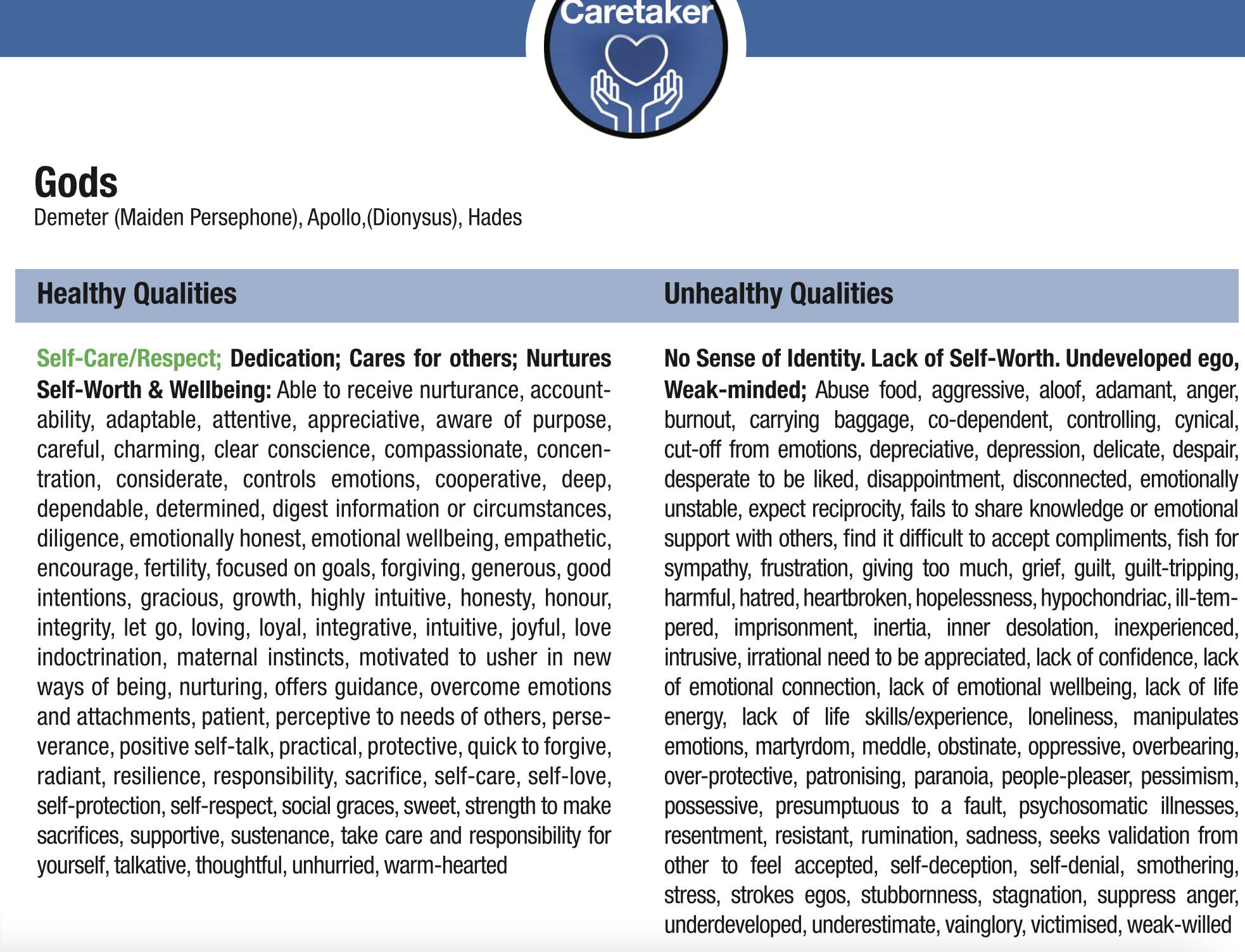
Although guilt can manifest in various ways, the emotional response can be divided into two categories; intrinsic guilt and irrational or maladaptive guilt.
It is the latter that reveals something is fundamentally wrong with your emotional apparatus — and also where the largest number of subcategories are identified.
To give the summing up a short thrift, intrinsic guilt is natural and tied to remorse. Irrational guilt arises due to the thought or perception that you have done something wrong.
We’ve probably all done something wrong that we kept secret and felt guilty about later. In some cases, feelings of intrinsic guilt will be justified, However, sometimes the guilt you experience is not justified. You may be being too hard on yourself — or you have a program that brings feelings of guilt into conscious awareness.
It’s because of the latter that it’s important to distinguish between intrinsic guilt and irrational guilt.
If you do feel bouts of irrational guilt from time to time, take note that you may have a complex that should be addressed. Complexes like guilt are signals that are trying to tell you something.
A guilt complex can lead to anxiety and depression. If you get to this stage you are in neurosis territory and heading towards the debilitating disease end of the spectrum.
Let’s take a deeper dive.
Intrinsic guilt is good guilt. It’s naturally hard-wired into the nervous system and arises when you have performed an act that you should rightly feel guilty about.
Intrinsic guilt is a testament to your personal integrity. It shows that you are psychologically developed and healthy. You have a conscience. If you also have emotional intelligence, you will be able to admit your guilt. Sometimes confessing eases the feeling of guilt.

Prime examples of the times when you should feel intrinsic guilt may include cheating on your partner, stealing, physically or emotionally abusing someone, denting a car in the parking lot and driving away without leaving your number etc.
Thus intrinsic guilt is tied to taking responsibility for your actions. When you betray the morals and ethics you conscientiously feel obliged to live by, you naturally feel a sense of guilt. And this can knock your self-esteem or sense of pride.
“The self-judgement which declares that the ego falls short of its ideal produces the sense of worthlessness… as a child grows up, the office of the father is carried on by masters and by others in authority; the power of their injunctions and prohibitions remain vested in the ego-ideal and continues, in the form of conscience, to exercise the censorship of morals. The tension between the demand of conscience and the actual attainment of the ego is experienced as a sense of guilt. Social feelings rest on the foundation of identifications with others, on the basis of an ego ideal in common with them.
Sigmund Freud, The Ego and the Id, p.31 (1923)
Researchers also categorise intrinsic guilt as the capacity to empathise [1] with the person or people you have offended — or would offend if they were to discover your misdeeds.
Once you begin to hold yourself to the ethical standards of the spiritual path, it becomes harder to let yourself get away with insensitive or harmful behaviour. At the same time, you may still have some old habits of carelessness and unconsciousness.
So, despite your best intentions, you sometimes do things that you know aren’t good for yourself or other people—and feel guilty. But if you are willing to look more deeply, you’ll probably find that your sense of toxic guilt has very little to do with anything that you did. That, paradoxically, is what makes it so toxic.
But what you do find is that toxic intrinsic guilt is a source of energy that Sigmund Freud called the Superego, or ego-ideal. When the ego veers off the path or falls off the wagon, as it were, your inner conscience makes you feel guilty.
“Intrinsic guilt is the consequence of betrayal of one’s own inner nature or self, a turning off the path to self-actualisation, and is essentially justified self disapproval.” [2]
~ Abraham Maslow: Toward A Psychology Of Being
When you suffer from this kind of pervasive guilt, any real-time infraction you commit becomes so freighted by the weight of your stored guilty feelings that facing it can feel paralyzing.
This type of natural guilt may also be accompanied by remorse after contemplating your wrongdoing and recognising the pain and suffering you might have caused someone. Or at the very least, pissed them off.
Studies show that overwhelming feelings of natural guilt will prompt individuals to confess their crime or show their remorse in one way or another. Confession is a means for believers to wash away their “sins” in a religious setting.
So, we can quite correctly link natural guilt with a betrayal of social ethics and human morals.

Intrinsic guilt is okay. It’s actually necessary for holding people accountable. It also underlies a psyche that is still relatively healthy even if you’re not whole or on the path to self-actualisation.
If you do not feel guilty for any wrongdoing, on the other hand, that can also be a signal that you are psychologically and emotionally disturbed. Narcissistic personality disorder, sociopaths and psychopaths do not feel guilt.
For now, the guilt-free feelings are beyond the scope of this article. What I want to discuss are the two “toxic” types of guilt that many of us feel without even doing anything we are guilty of.
I know this feeling from a young age. One memory that stands out for me was during my teens. There was this one time when a teacher at school came into our classroom and said whoever sprayed graffiti on the gym wall would be punished.
Although I was not the culprit, I felt a sense of guilt welling inside; at least what I perceived to be guilt. At the time, I didn’t know why feelings of guilt surfaced.
What I have recently discovered is that many of my earlier experiences with discipline were unjustified. I felt some of the punishments handed out to me in my formative years were unjustified. I was being accused, judged and sentenced for being me or just because I was there.
The guilt I felt that day as a 14-year-old was because I thought I might be accused of doing something I hadn’t done. Like the time I had to scrape toilet paper out of the basin that someone had stuffed in there. I wasn’t the culprit but I got the blame along with another boy. I asked him if he had done it and he denied that he had. I will never know if he lied or not.
On another occasion, my friends were messing about and causing a disruption whilst I sat quietly on a chair. I was hauled into the headmaster’s office regardless. One of my friends defended me but the teacher punished me anyway.
Every child is punished for something they either didn’t do or for something they did not realise was wrong. Like being told off by your parents for behaving in a way that is deemed unacceptable. You didn’t know you were doing anything wrong. You were guilty of being yourself.
This is one of the reasons why you feel guilty. Guilt is a subconscious program that is free-floating and irrational.

Free-floating guilt is a toxic guilt that surfaces when intrinsic guilt has been allowed to fester. It’s a subjective experience that can vary in intensity and duration from person to person.
Toxic guilt gives you a general sense of unease or guilt that seems to exist without a clear cause or rational explanation. This feeling can be pervasive and persistent, and individuals who experience it may have trouble identifying why they feel guilty.
Free-floating guilt is sometimes associated with underlying anxiety or depression. People experiencing high levels of stress or emotional distress may develop a sense of guilt that is not tied to any specific wrongdoing but rather reflects their overall emotional state.
Studies show that free-floating guilt can arise from a specific behaviour that is perceived to be “bad”. [3] It typically arises spontaneously and can be accompanied by a feeling of unworthiness.
Another type of free-floating toxic guilt is shamed-based guilt. This is rooted in feelings of inadequacy and is the result of being disciplined as a child simply for being natural.
Parents who shame their children as a form of discipline seed a program that surfaces as irrational guilt later in life. Individuals experiencing this type of guilt often perceive themselves as inherently flawed or bad, leading to a deep sense of shame, worthlessness and powerlessness.
Irrational guilt is, therefore, tied to how you assess yourself and how you perceive other people to judge you. You even go as far as to develop avoidance patterns that prompt you to repress how you think and feel or meet your basic needs; love, belongingness, safety, self-esteem and respect.

Some people feel guilty for something they didn’t do but could have done better. For example, one of my clients still felt guilty for the collapse of her marriage, even though she had been divorced for 20 years.
Her guilt came because she blamed herself for not doing enough to maintain or save her marriage. Yet it was her husband who cheated on her. So her guilt was misplaced. She felt guilty because she was deemed ‘not good enough’ and blamed herself for not doing more to make her husband stay loyal. Her ingrained belief was she ‘could have done better.’
These are subconscious programs associated with the unhealthy Sage. This energy typically surfaces when children are unfairly judged, criticised and punished as a child. The Sage also has a strong sense of justice being served, an offshoot and another signal tied to guilt (the second type of irrational guilt detailed below).
Even as an adult, there may also be times when you are made to feel guilty by your friends or partners. This is a form of manipulation to make you feel guilty, and in instances where you have let someone down invariably you do feel guilt. Again, that dreaded feeling of not being a good person rears its ugly head.
An example might be that you feel guilty for not calling your mother and your sibling has a go at you for it.
This second type of irrational guilt is existential guilt. It is also a seed planted to prod your conscience but is typically triggered by an external incident—usually an accusation or, as in my case at school that day, the false perception that somebody will suspect you are guilty of whatever misdeed has occurred.
For example, in some cases, existential guilt may surface when you see pictures of starving children in Africa on the news, a homeless person in the street, or if you stem from a “white-privilege” background, an individual from an ethnic minority that you know is subject to racial abuse.
Existential guilt is typically due to collective or cultural guilt that makes you feel responsible for someone else’s well-being, even if the situation is beyond your control. This can be particularly challenging when caring for loved ones with health issues or emotional struggles.
This type of irrational guilt, or anxiety, is deemed to arise from a person’s contemplation of their existence, freedom, and choices in the face of life’s inherent uncertainties.
Existentialists emphasise the idea that individuals have radical freedom to make choices and create their own meaning in life. However, this freedom also carries the burden of responsibility for one’s choices.
Existential guilt can arise when individuals feel overwhelmed by the weight of their choices and the consequences that come with them. Particularly if your choices are not aligned with the purpose of your True Nature.
Are your lifestyle choices materialistic, hedonistic or misdirected? Are you living a life your parents guided, or pushed, you towards, or are you fulfilling your true purpose?

The existentialist philosopher Jean-Paul Sartre stressed the importance of authenticity, which involves being true to oneself and one’s values. Authenticity requires self-respect. You only have control of your own choices, nobody else’s.
“Man is condemned to be free; because once thrown into the world, he is responsible for everything he does. It is up to you to give [life] a meaning.”
~ Jean-Paul Sartre, Being and Nothingness (1943)
Existential guilt may arise if you feel that you are living an inauthentic life, conforming to societal norms or expectations rather than living in accordance with your own values, beliefs, or purpose.
When you live this way you repress or suppress aspects of your personality and deny them expression. This is a form of self-betrayal, a lack of self-respect.
Guilt, therefore, could be your inner conscience signalling that you are not being your True Self. You have become the mask you show in public rather than who you truly are. It’s this part of you that Sigmund Freud called the Superego that makes you feel guilty when you betray your True Self or neglect to take responsibility for your personal growth.
Overcoming guilt and upgrading your subconscious program is a step that most people if not everybody, should perform at some point or other. If you can identify with episodes of irrational guilt, undertaking practical exercises for overcoming guilt is advisable — especially if it is reducing your happiness and fulfilment of life.
First of all, identify whether the source of your guilt is intrinsic or irrational.
Whilst intrinsic guilt is natural, and a signal that you are inherently a good person don’t forget, that if you allow it to fester, unchallenged guilt can continue to haunt you for years.
So if you are still feeling guilty about something you feel or know was wrong years ago, get it off your conscience and tell someone. Even if you only confess anonymously, speaking to someone who will give you feedback and redemption can help you to overcome your misdeed.
Also, forgive yourself. At the time, you may have had good reason to do what you did, or you didn’t know any better. Reason with yourself and give yourself the redemption somebody else would.
Studies show that holding onto guilt sabotages the mind and gets in the way of leading “fulfilling, meaningful and happy lives”. Holding onto guilt is shown to increase levels of stress and anxiety.
We all do stupid shit when we’re younger, either because we don’t know any better or because of unconscious impulses that prompt us to take actions we have no control over. This can happen when an archetype takes possession of the ego and you have a moment a madness.

Healing irrational guilt starts by identifying thought patterns that may be contributing to your guilt. Are you holding yourself to unrealistic standards or expecting perfection?
When you notice negative self-talk or self-criticism, challenge those thoughts with rational and evidence-based counterarguments. Ask yourself if there’s concrete evidence to support your feelings of guilt.
It can often be the case that we hold ourselves accountable for being guilty or ‘bad’ because we were programmed as children to believe we were not good enough.
It’s important to recognise that humans are inherently good. Moreover, we make mistakes in the heat of a moment that we may later regret. Practice self-compassion by treating yourself with kindness and understanding.
If you suspect irrational guilt is the result of unjust punishment when you were are child, acknowledge that you have no reason to feel guilty. Then forgive the person, or persons responsible for seeding this program.
Here’s a personal example of how I was programmed to feel irrational guilt.
When I was six or seven, I was punished by a teacher for not being able to do a maths sum. To this day, I remember standing at her desk at the front of the class. Other children in the room were chattering and I couldn’t think straight. I also felt under pressure and had brain fog.
The teacher became frustrated with me. Maybe she thought I wasn’t trying or she was disappointed because she thought I should do better. She gave a black spot.
When a child was given a black spot at our school, they had to stand up and own it in assembly where their guilt and shame were hung out to dry in front of the entire school.
I suppose the intention of this exercise was to make an example of things children should not do. What our school was actually doing was humiliating children and seeding guilt and shame in their subconscious that they would carry into adulthood.
If anything like this happened to you it’s not your fault.
I suspect the source of my guilt was due to being humiliated for not completing a maths sum. My seven-year-old brain is then seeded with the program that I am not good enough.
The program ‘I am not good enough’ not only surfaces as guilt but can also appear as perfectionism as I explain in the video below.
What made my humiliation worse is that on the day of the assembly when I knew I would have to stand up and own my punishment, I feigned illness and skipped school.
However, the teacher was not prepared to allow me to escape punishment. She brought my misdemeanour up in an assembly the following week and I had to stand in front of the entire school on my own.
Now all eyes were on me. And only me! The sense of humiliation and feeling of ‘I am not good enough’ was intensified.
This punishment I received does clearly not merit the misdemeanour. Not being able to complete a maths sum doesn’t make me a bad person. But can you see how this incident would cause the feeling of guilt to arise when the teacher was looking for the graffiti vandal?
That guilt was because I thought I was going to be accused and judged unfairly. So consider when guilty feelings arise for you. Is it when you do something that you expect people will judge you for?
It could be that your expectation of being judged is being overblown by your imagination. What are you actually doing that other people don’t do?
The reality is, probably nothing.
It’s very easy to program a child with guilt. Scientific research shows how guilt is a biological phenomenon that occurs as a result of a child being made to believe they are bad.
When this happens, the ego feels it has to defend itself. Here’s how it works.
Remember that humans are intrinsically good. What actually makes us believe we are bad is our experiences in life; our culture, parenting skills and how we are treated by teachers and peers.
When a child is unjustly treated and accused of being ‘bad’, the ego tries to block out these painful experiences. Psychobiology shows us that the intellect suppresses our instincts.
But instincts — the True Self or “soul” — continue to provide feedback in the form of complexes such as irrational guilt. Complexes are actually split-off aspects of your personality that have been buried.
To defend its sense of self-worth the ego continues to suppress instincts in order to deny unwanted criticism. This is how we develop feelings of insecurity and low self-esteem; both of which are associated with feelings of guilt and shame. [4]
Complexes cause problems in our lives. In ancient mythology, these split-off instincts are personified as demons, or satan, Lucifer who was thrown out of heaven for defying god. Complexes stunt our personal and spiritual growth.
The intellect then has to develop a coping mechanism to fill the void left by the missing aspect of your personality. According to Freud, when we give into the instincts of the id (the demons), the Superego judges your behaviour and makes you feel guilty for not living a good and righteous life.
But this all happens when you were made to feel bad or a failure in the first place.
In his book, Freedom: The End of the Human Condition, Jeremy Griffith highlights how the moral conscience of our instincts makes us feel guilty.
“We discover at the very end of our journey to enlightenment that conscious humans, immensely corrupt as we are, are ‘good’ and not ‘bad’ after all, and that which was ‘good’, our moral conscience, turns out to be the cause of our sin.” [5]
~ Jeremy Griffith, Freedom: The End of the Human Condition
So feelings of guilt may be arising because you are not living life to your full potential. If you are influenced by complexes that create coping mechanisms, your inner judge is making you feel guilty.
So the best way to overcome irrational guilt is to identify which complexes are a coping mechanism and integrate the missing aspect of your personality.
You can identify complexes by using the archetypes tool designed by Master Mind Content. This tool enables you to identify which energies are leading you astray and creating irrational guilt.

If existential guilt is coming up for, it can serve as a catalyst for self-reflection and reasoning that leads to personal growth.
Existential guilt is not necessarily a pathological condition but rather a philosophical and psychological exploration of the human condition. It shows you have compassion and empathy.
But it can also reveal to you that your life is not moving in the right direction. Does your life have purpose and meaning?
[2] Abraham Maslow: Toward A Psychology Of Being, p.161, Kindle Loc 3200, (1962)
[3] Shame and guilt in neurosis
[5] Jeremy Griffith, Freedom: The End of the Human Condition, p.166 para 283 (2015)
